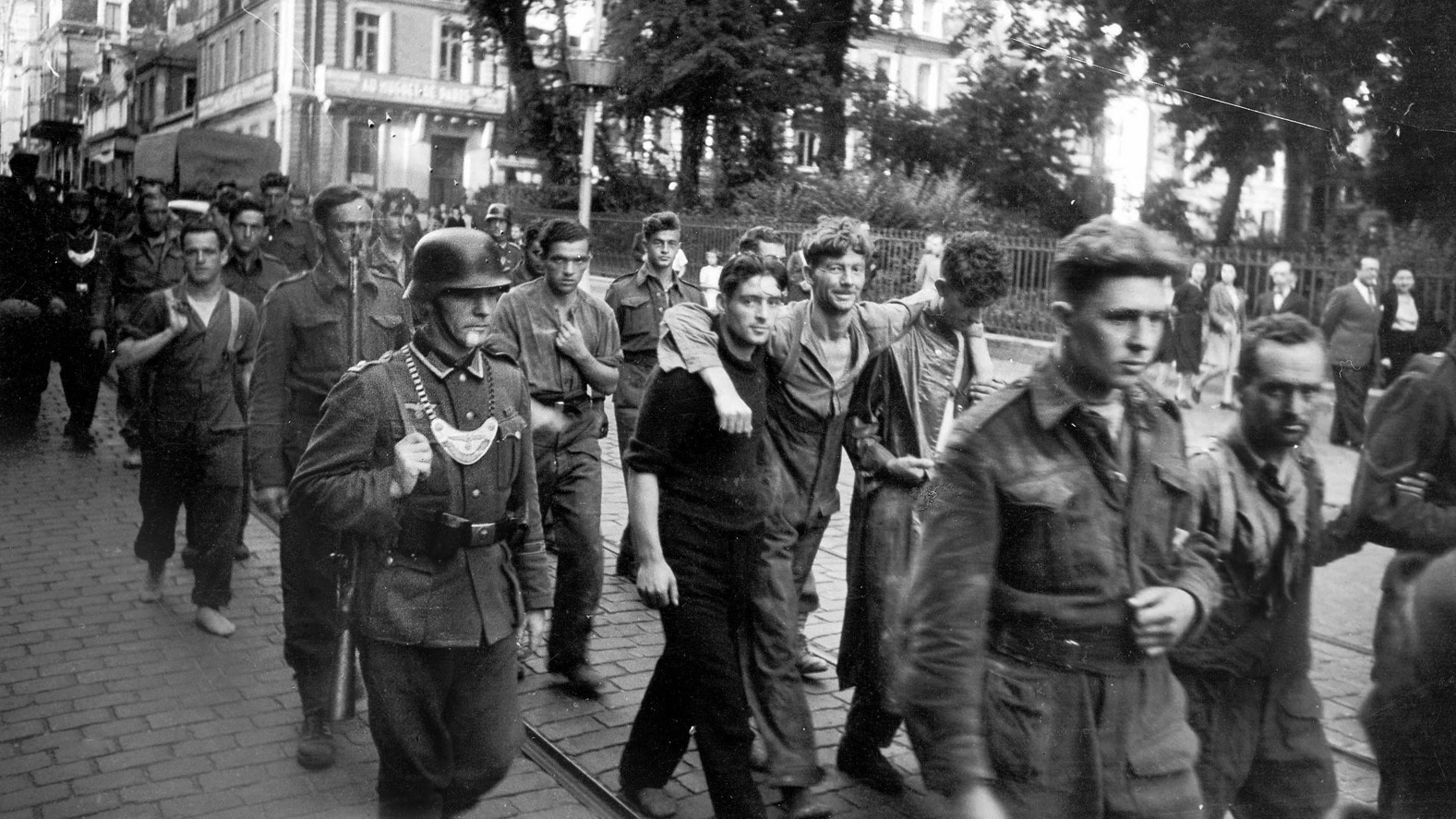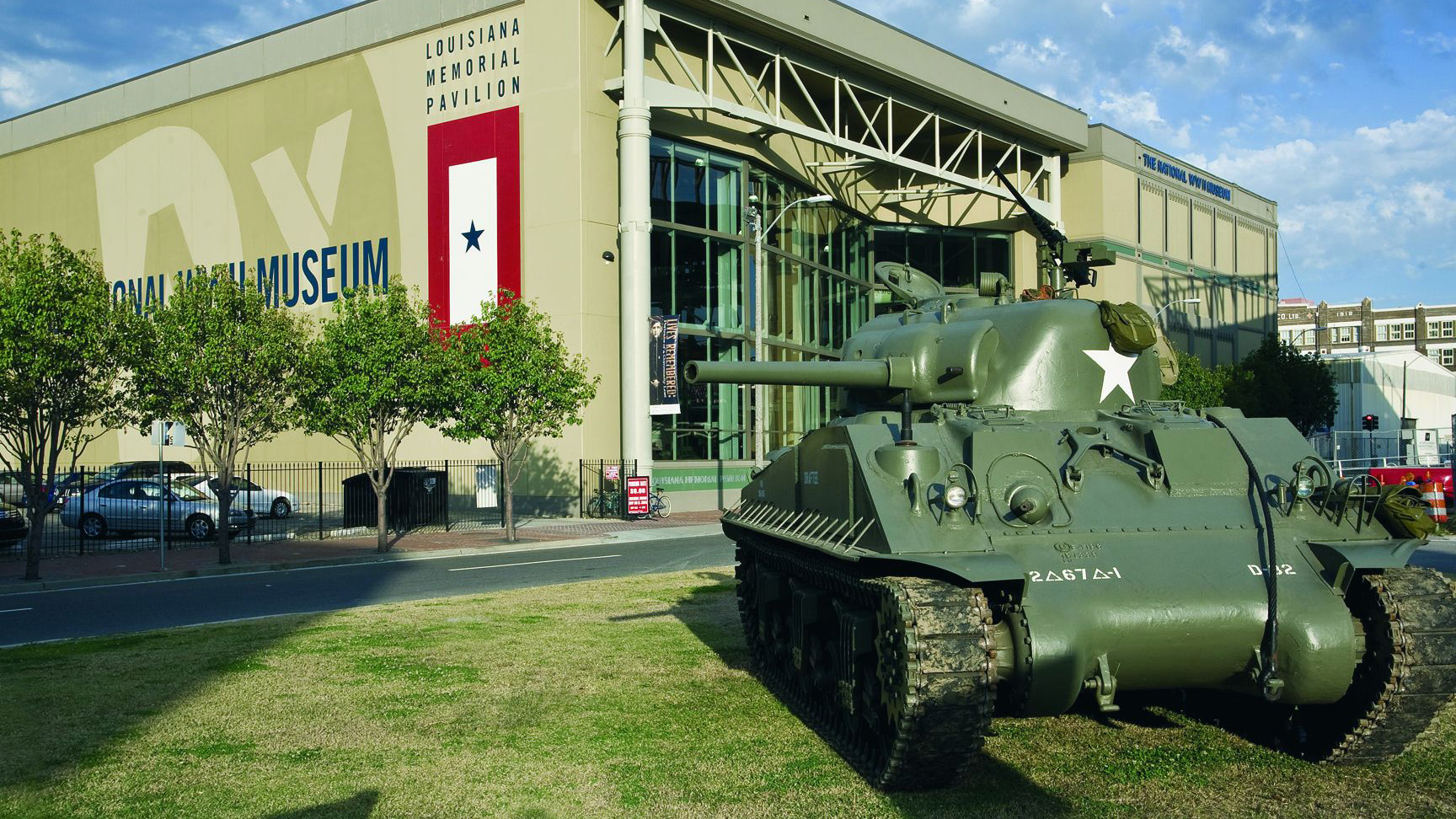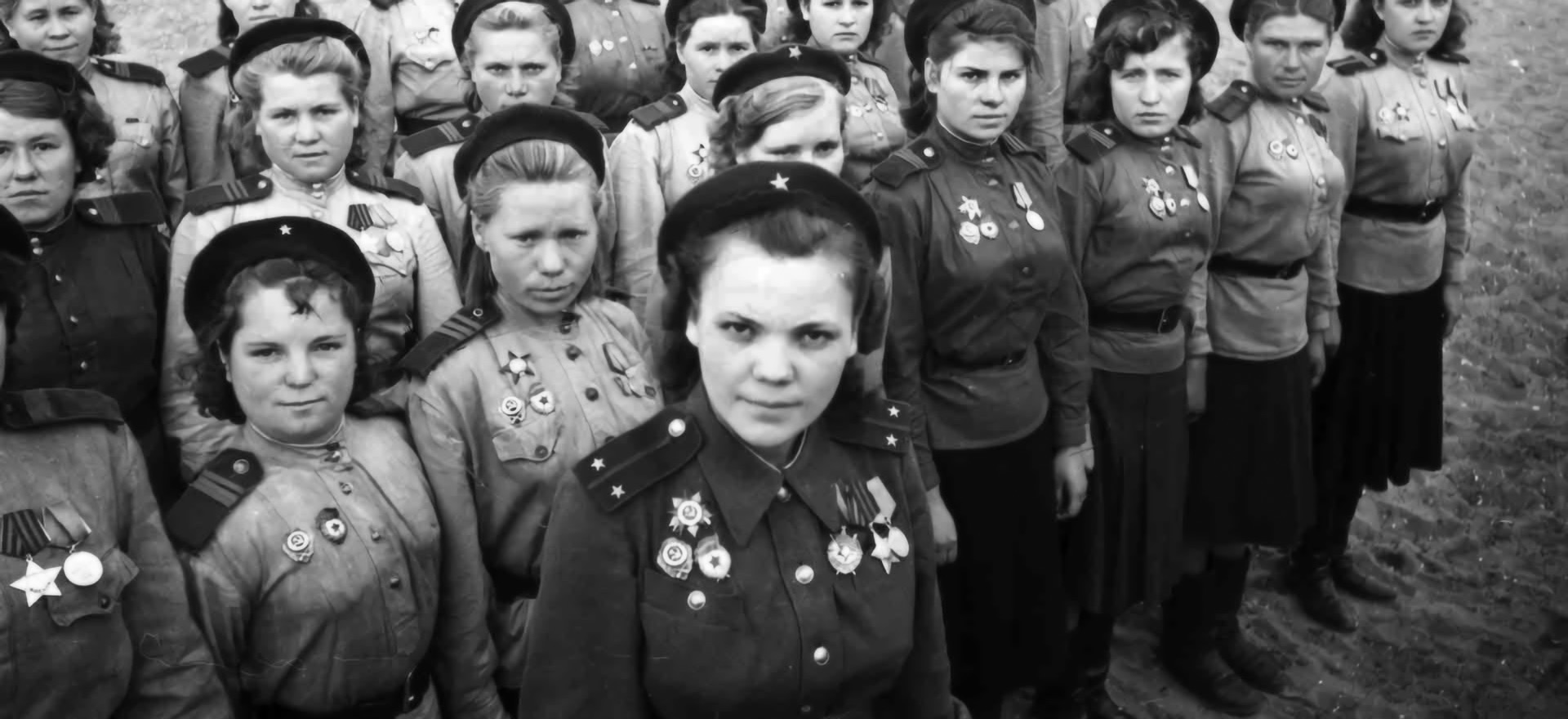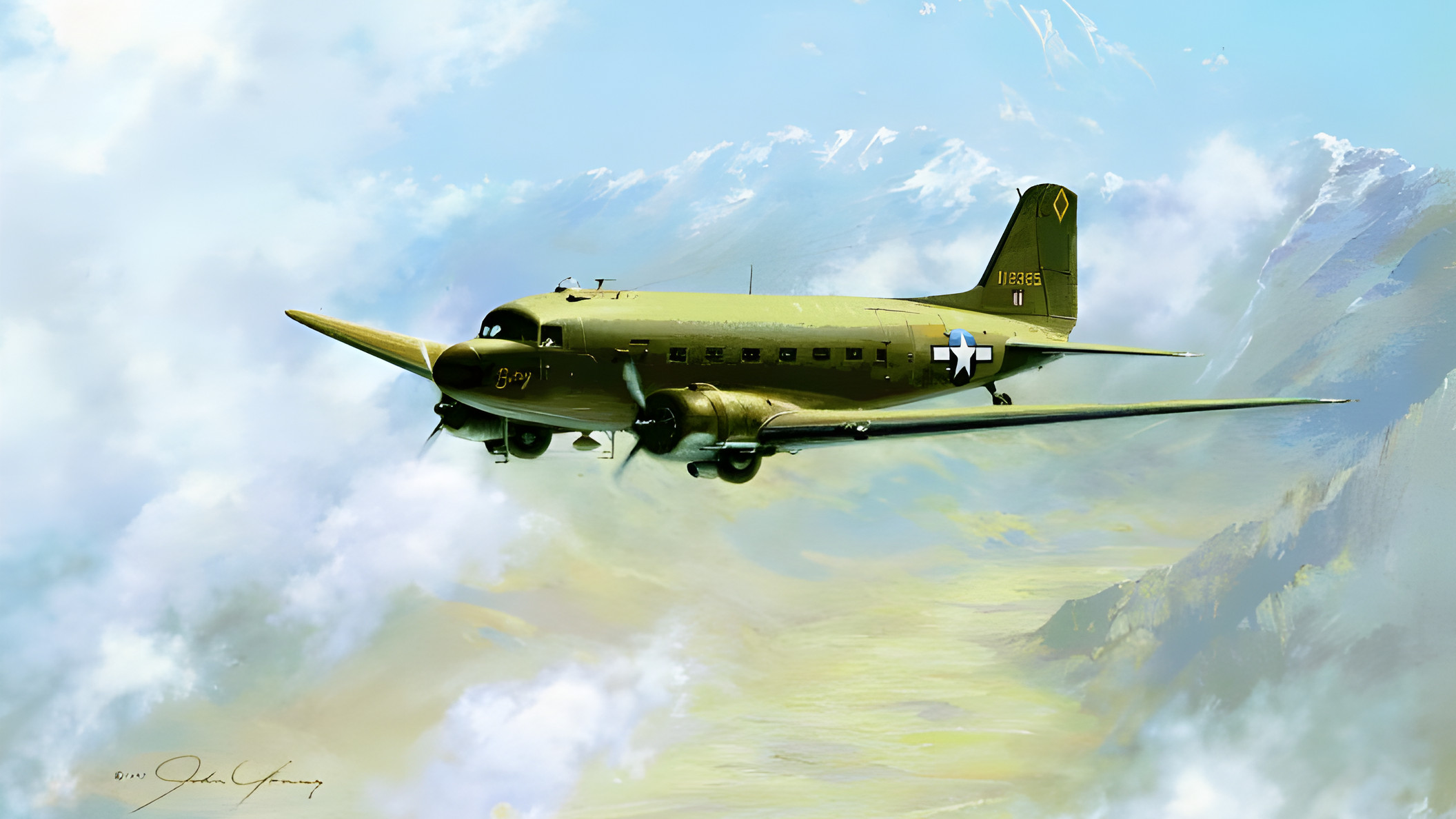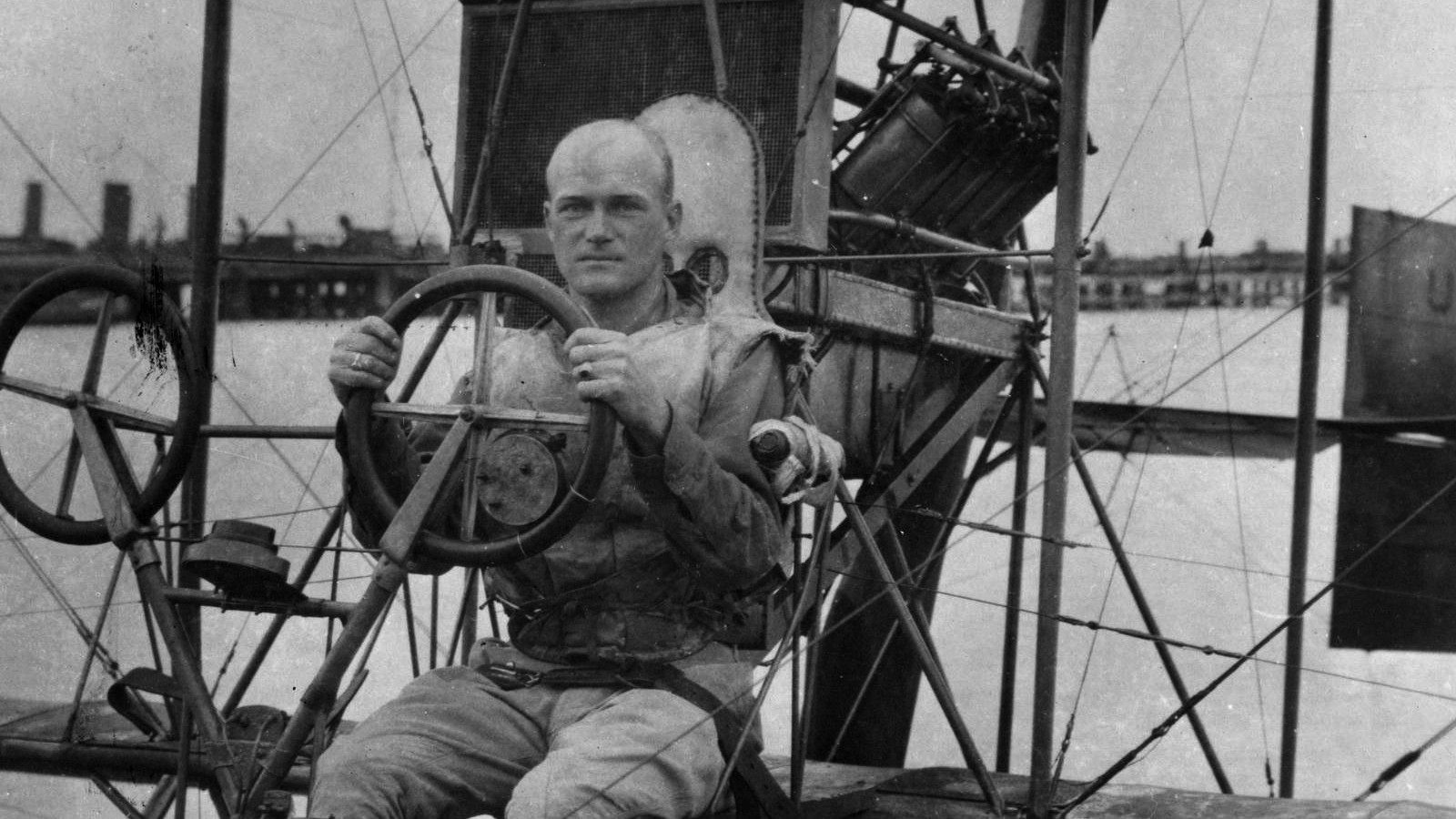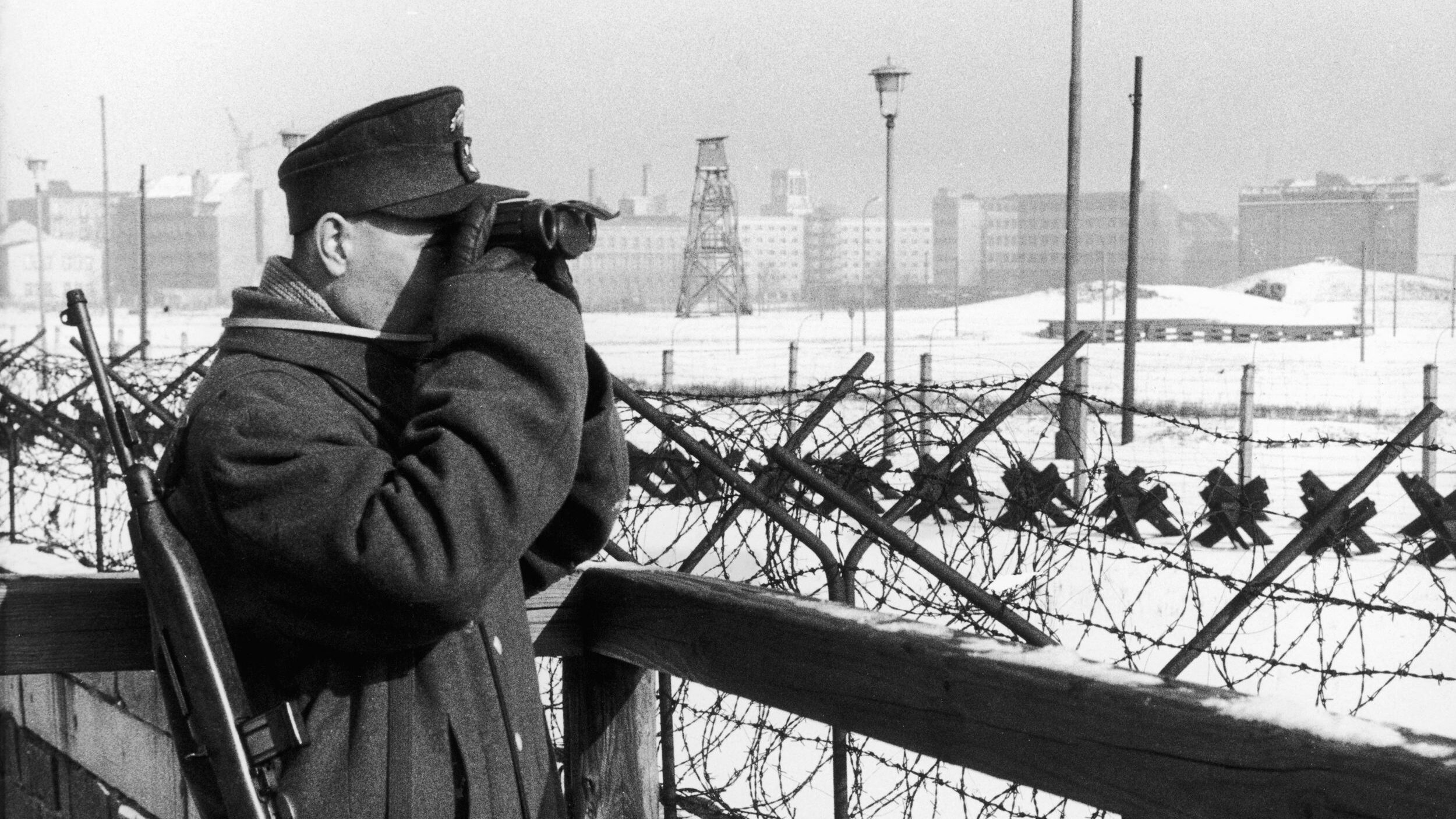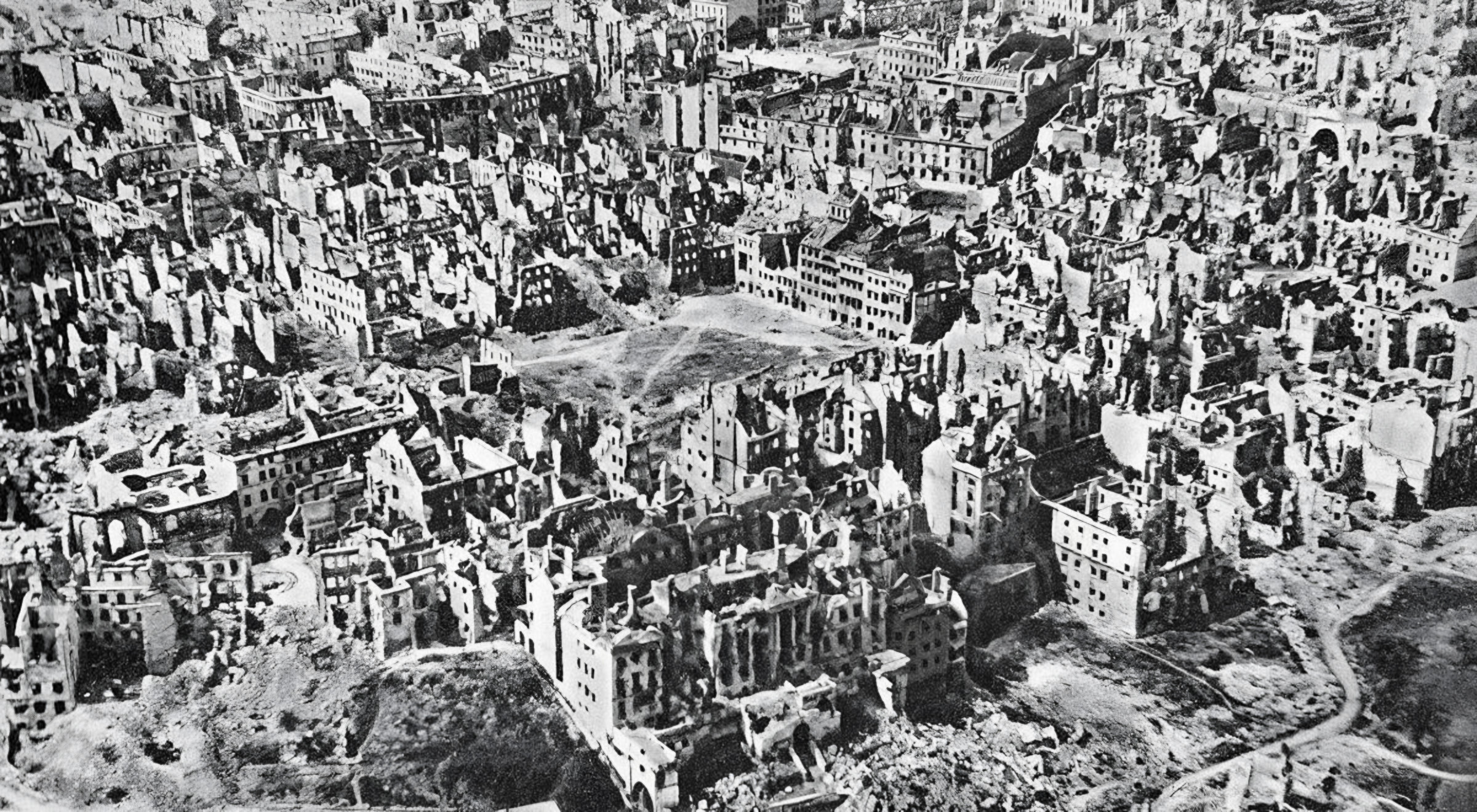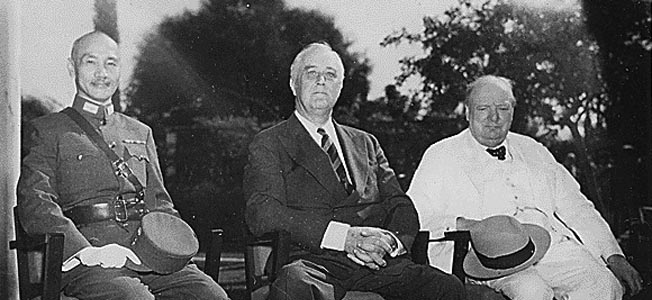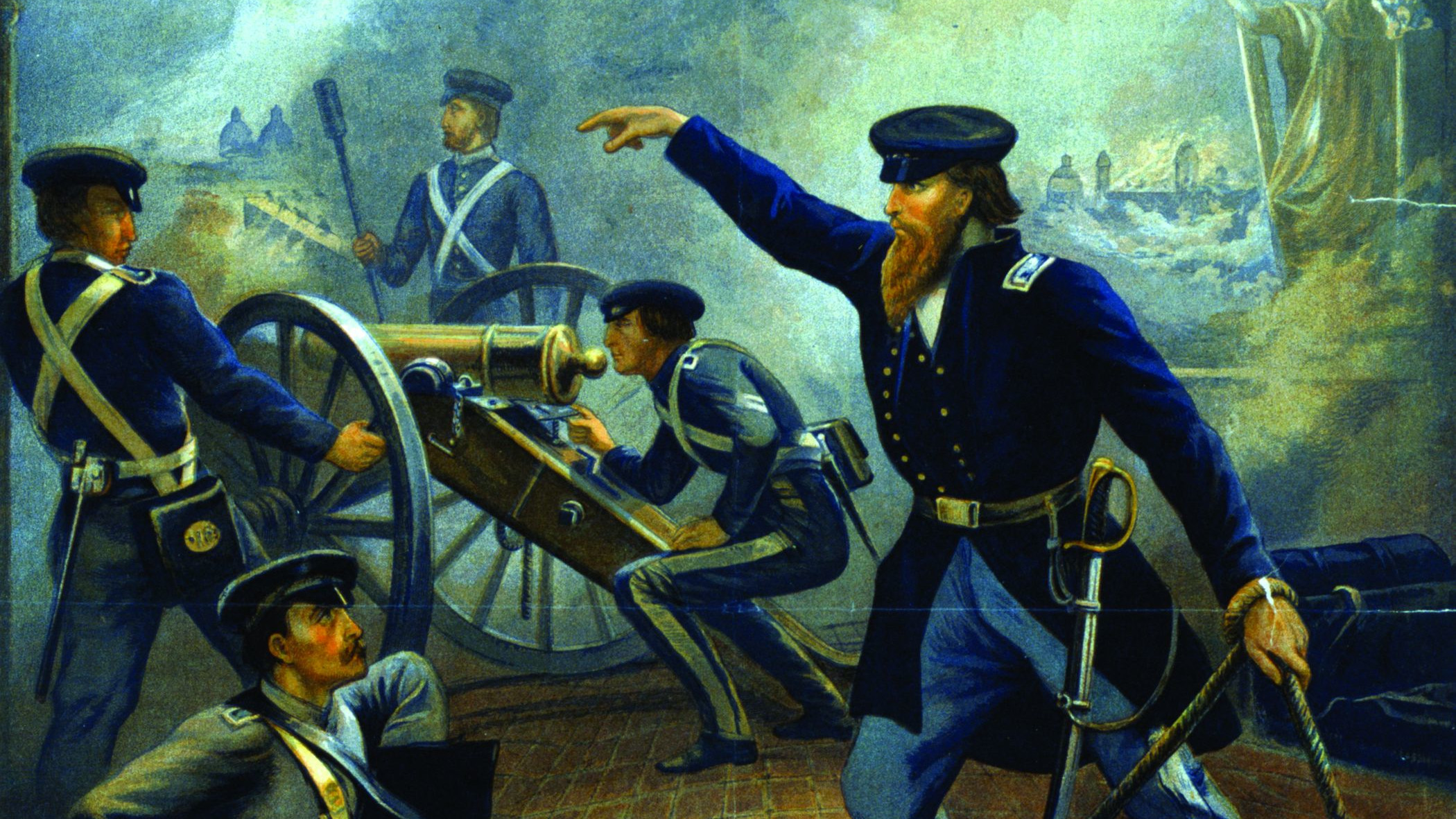By Brent Dyck
On the morning of August 19, 1942, the Canadian 2nd Division sailed across the English Channel and attacked the Nazi-held port of Dieppe, France. What happened next was, as one historian wrote, the “nine bloodiest hours” of Canadian history. The city of Dieppe is located on a cliff with a beach below. The Canadians were massacred on the beach and in the water by German machine-gun and artillery fire as they left their landing craft.
Of the approximately 5,000 Canadian soldiers who took part in the raid, 916 were killed, 505 were wounded, and 1,946 were taken prisoner. This is a casualty rate of almost 70 percent, higher than even the worst battles of World War I. One Dieppe veteran even likened the scene he witnessed on the beach that day to a “holocaust.”
The raid was doomed from the start. Originally, the Royal Air Force was supposed to use heavy bombers to pound the German defenses around Dieppe. However, by the summer of 1942, the RAF had begun launching bomber night raids over Germany with the aim of destroying enemy war production. The chief of Bomber Command, Air Marshal Sir Arthur Harris, felt that this was more important, and he refused to spare any of his bombers for the Dieppe mission. Second, the British Royal Navy was supposed to destroy the German defenses with shells from its battleships. However, due to fear that the English Channel was mine infested, the Royal Navy refused to lend any battleships for the raid.
So it was without any air or naval support that the Canadians climbed into their boats on the morning of August 19 for the impossible task of taking the port. The Canadians displayed great heroism in the face of adversity. A few dozen men of the Royal Hamilton Light Infantry managed to charge their way across the beach under a hail of gunfire, scaled the cliff, made their way into town, and captured the casino. After holding it for a few hours they retreated back to the beach. Three soldiers would be awarded the Victoria Cross, the British Commonwealth’s highest award for bravery, for the heroism they showed that day.
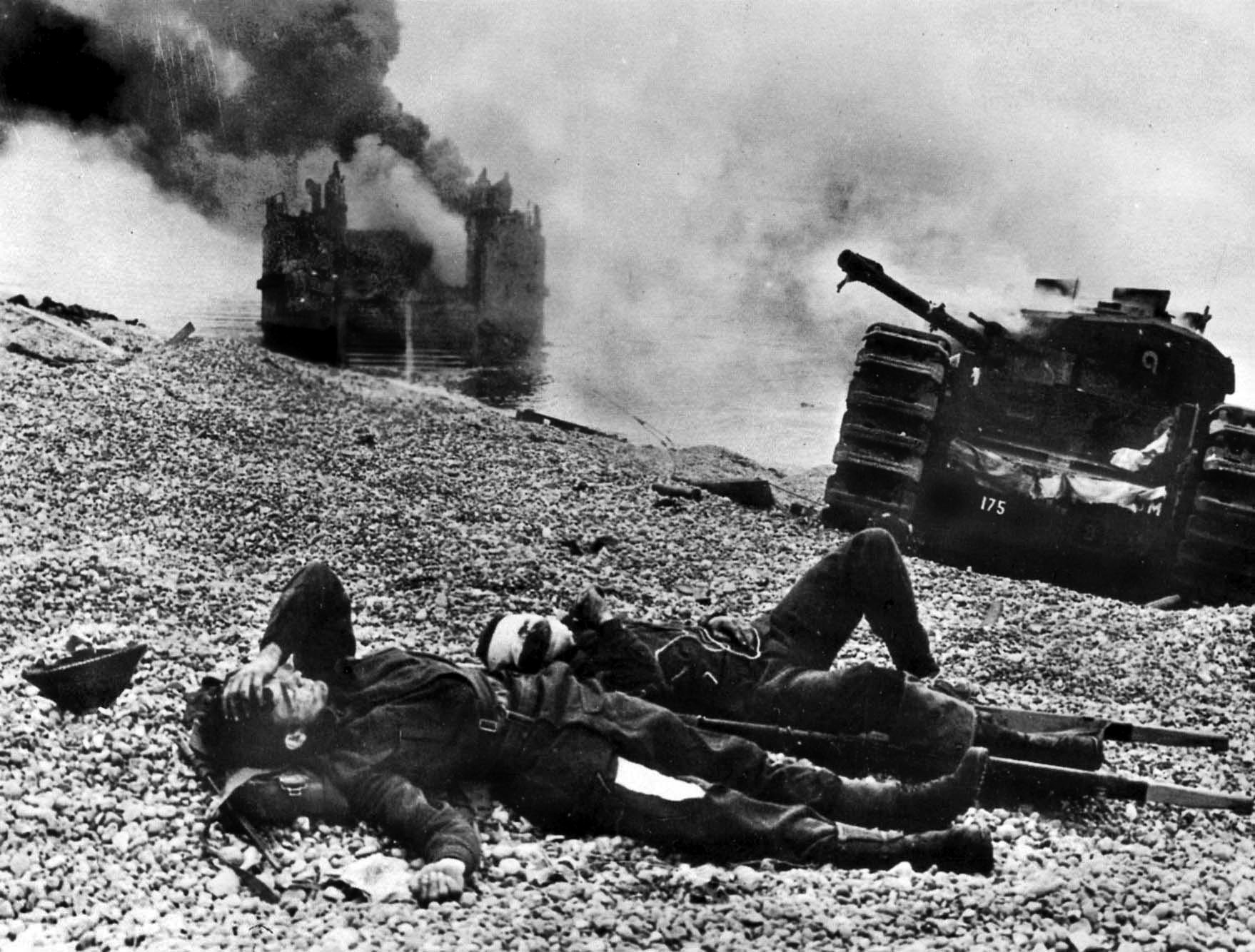
Nazi-occupied France in August 1942.
One of the great mysteries of World War II that has troubled historians and survivors of the raid is why it happened in the first place? What was to be accomplished? Why did so many Canadians have to die?
There have been many theories as to why the tragic raid on Dieppe occurred. The official reason for the raid was put forth by British Prime Minister Winston Churchill in his 1950 book The Hinge of Fate. By the summer of 1942, the German Army had penetrated deep into the Soviet Union and was threatening the city of Stalingrad and the oil fields of Baku. Churchill was under intense pressure from Soviet Premier Josef Stalin to open a second front in the West to help alleviate the pressure on the Red Army. In May 1942, Soviet Foreign Minister Vyacheslav Molotov first visited Churchill in London, then went on to Washington to visit President Franklin D. Roosevelt, then visited Churchill again on his way home—all the while pleading for a second front as soon as possible.
After Molotov’s visit, Roosevelt cabled Churchill, “I am more than ever anxious that BOLERO (the code name for the second front attack) proceed to definite action beginning in August and continuing so long as the weather holds in 1942.” In July, Stalin once again wrote Churchill, complaining, “I must state in the most emphatic manner that the Soviet Government cannot acquiesce in the postponement of a Second Front in Europe until 1943.”
In his book, Churchill writes that the attack on Dieppe was therefore undertaken to “take the weight off Russia” so that the Germans would “hold troops and resources in the West.” Therefore, seen in this light, the Dieppe raid was a noble yet tragic attempt by Great Britain to help its ally, the Soviet Union.
However, in an earlier section of the book Churchill relates that he was in Moscow visiting the Soviet leader during the week of the Dieppe Raid. On August 14, he sent a message to Stalin in which he argued that a “second front” was not feasible in France in 1942. Perhaps haunted by the slaughter on the battlefields of World War I, Churchill wanted an invasion instead in Italy, against what he called the “soft underbelly” of Europe, and this would not be ready until sometime in 1943. To convince Stalin, Churchill wrote that an “attack with six or eight Anglo-American divisions on the Cherbourg peninsula and the Channel Islands would be a hazardous and futile operation. The Germans have enough troops in the West to block us in this narrow peninsula with fortified lines and would concentrate all of their air forces in the West upon us. In the opinion of all the British naval, military, and air authorities, the operation could only end in disaster. Even if the lodgment were made it would not bring a single division back from Russia.”
So on one hand Churchill writes that an attack by eight divisions, or a force of 50,000 men, against the coast of France “would be hazardous and futile” and “could only end in disaster.” On the other hand, five days later he sent 5,000 Canadians to attack the French port of Dieppe. How could Churchill argue that the reason for the Dieppe Raid was to “take the weight off Russia” when he acknowledged that a force 10 times greater “would not bring a single division back from Russia”? It is obvious that this reason for the raid, to take the pressure off the Soviet Union, does not bear up to scrutiny and rings hollow.
Therefore, if taking the pressure off the Soviet Union was not the real reason for the raid then what was? One argument is that the raid was a dress rehearsal for the D-Day invasion of Normandy two years later.
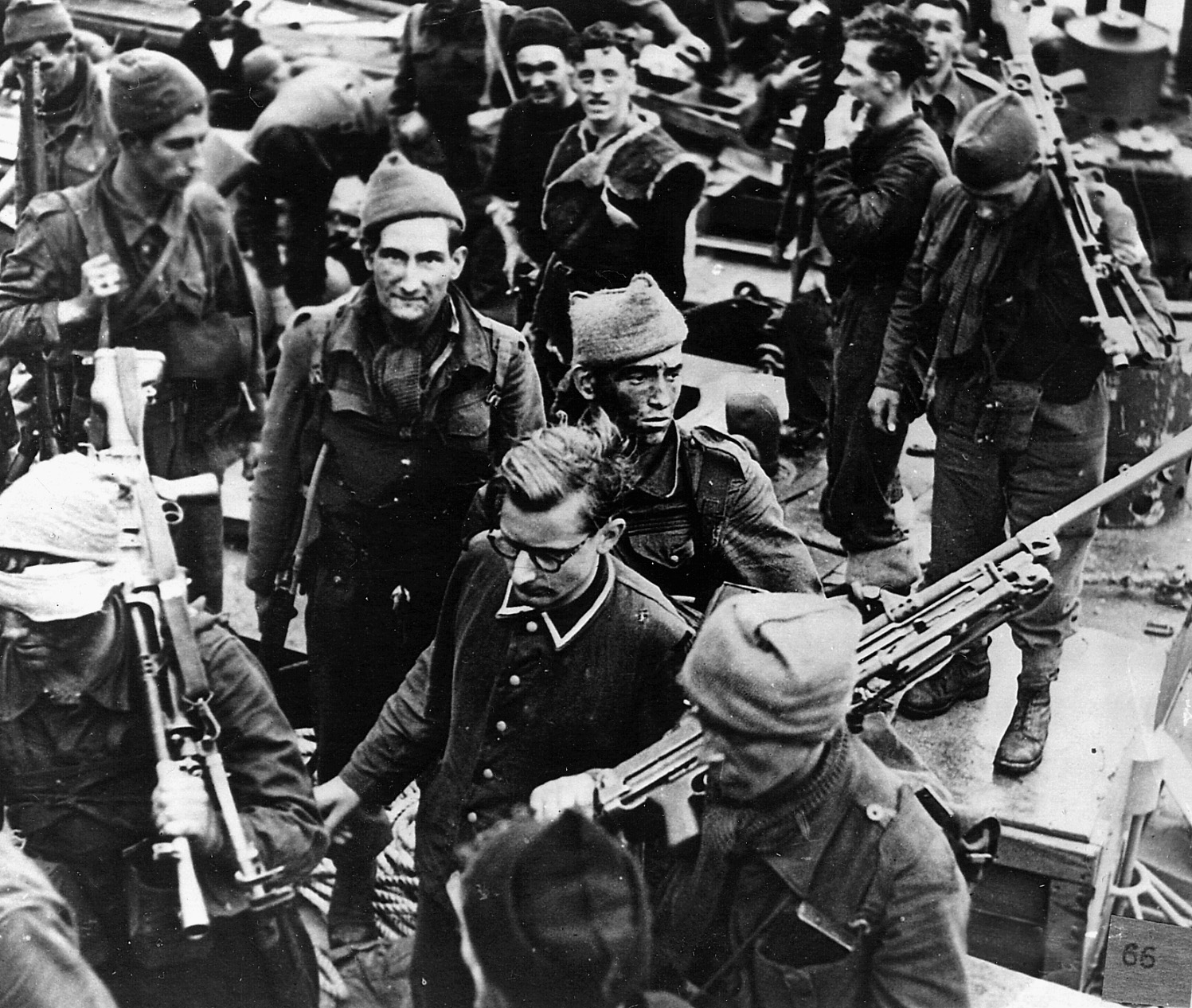
were caught on camera just as they reached safety.
In his 1948 book Crusade in Europe, Supreme Allied Commander General Dwight D. Eisenhower wrote that “from it [the Dieppe raid] we learned a number of lessons that we later applied to our advantage.” In other words, a new myth arose that the Dieppe Raid was not a failure at all because without it the D-Day invasion would never have succeeded. This belief was echoed by Lord Louis Mountbatten, the planner of the raid code-named Operation Jubilee, as well. In a speech to Dieppe veterans in 1973 he said, “The successful landing in Normandy was won on the beaches of Dieppe.” Mountbatten is also reported to have said that “for every soldier who died in Dieppe, at least 10 more must have been spared [on D-Day].”
Once again, this argument for the raid is specious. British General Frederick Morgan was appointed chief of staff to the supreme Allied commander (COSSAC) on March 12, 1943. Morgan and his team were given the task of planning the invasion of Europe. Morgan did not submit his first draft of the D-Day landing plan to the British Chiefs of Staff until mid-July 1943. Therefore, the invasion of Normandy was not even dreamed of yet, never mind planned, by the Allies when the raid on Dieppe took place. As one historian has asked, “Is it not absurd to proclaim Jubilee a rehearsal for an operation—Overlord—implemented in June 1944 but not yet conceived two years earlier, in the summer of 1942?” As well, it is possible that the planners of D-Day learned from the mistakes made at Dieppe—to use more men, to land on a beach and not a defended city, to bring their own harbors, and to include punishing aerial and naval bombardment—but these were not the purposes for the raid in the first place. It is as if these platitudes were created after the success of D-Day to justify the failure of Dieppe. Therefore, preparing for D-Day cannot be the reason for the raid.
Another theory for the Dieppe Raid was put forth by Canadian historian David O’Keefe in his 2013 book One Day in August. O’Keefe believes that the real reason for the raid was to try to steal a German Enigma machine or secret code books. Every regiment in the German Army possessed an Enigma machine. German headquarters sent coded secret messages to its regiments through the Enigma, and if the British could capture a machine they could possibly decipher such messages and they would know the Germans’ secrets and plans. According to O’Keefe, “The search for intelligence material was not a driver for the raid but indeed the driver.” The British created a special unit, the 30 Assault Unit, specifically for this purpose. These soldiers were specifically taught how kill in hand-to-hand combat, pick locks, and crack safes. Therefore, O’Keefe believes that the real reason for the raid on Dieppe was to divert attention to the beaches while the 30 Assault Unit snuck into German headquarters at the Hotel Moderne and stole an Enigma machine and its code books. Unfortunately, the members of the 30 Assault Unit were pinned down on the beaches and never made it into the city. Interestingly, Ian Fleming, who later wrote the James Bond series of books after the war, was one of the leaders of the 30 Assault Unit.
One of the most controversial theories for the raid was suggested by Canadian historian Jacques Pauwels in his book The Myth of the Good War. As noted, by the summer of 1942 Winston Churchill was under tremendous pressure from the Soviet Union to open a second front in Western Europe. Pauwels believes that Churchill did not want to open a second front because he liked the idea that the Soviet Army “was providing the cannon fodder needed to vanquish Germany” while Great Britain waited on the sidelines. According to Pauwels, Churchill was no lover of communism, and so he was happy for both his Nazi enemy and his Soviet ally to “administer a major bloodletting to each other on the Eastern Front.” Pauwels argues that Churchill “could not reveal the true reasons why they did not wish to open a second front.” Instead, Churchill needed a justification or a reason to show Stalin why he could not open a second front in 1942. Therefore, Pauwels writes that the Dieppe Raid was created to fulfill a political objective, not a military one. He believes that the Dieppe Raid was purposely designed by the British government to fail—not to succeed.
Pauwels writes that by sacrificing the Canadian 2nd Division “the Dieppe tragedy was indeed a great success, even a double success. First, the operation could be, and was, presented as a selfless and heroic attempt to assist the Soviets. Second, the failure of the operation seemed to demonstrate only too clearly that the Western Allies were indeed not yet ready to open a second front. If Jubilee was intended to silence the voices clamoring for the opening of a second front, it was indeed a great success. The Dieppe disaster silenced the popular demand for a second front and allowed Churchill and Roosevelt to continue to sit on the fence as the Nazis and the Soviets slaughtered each other in the East.”
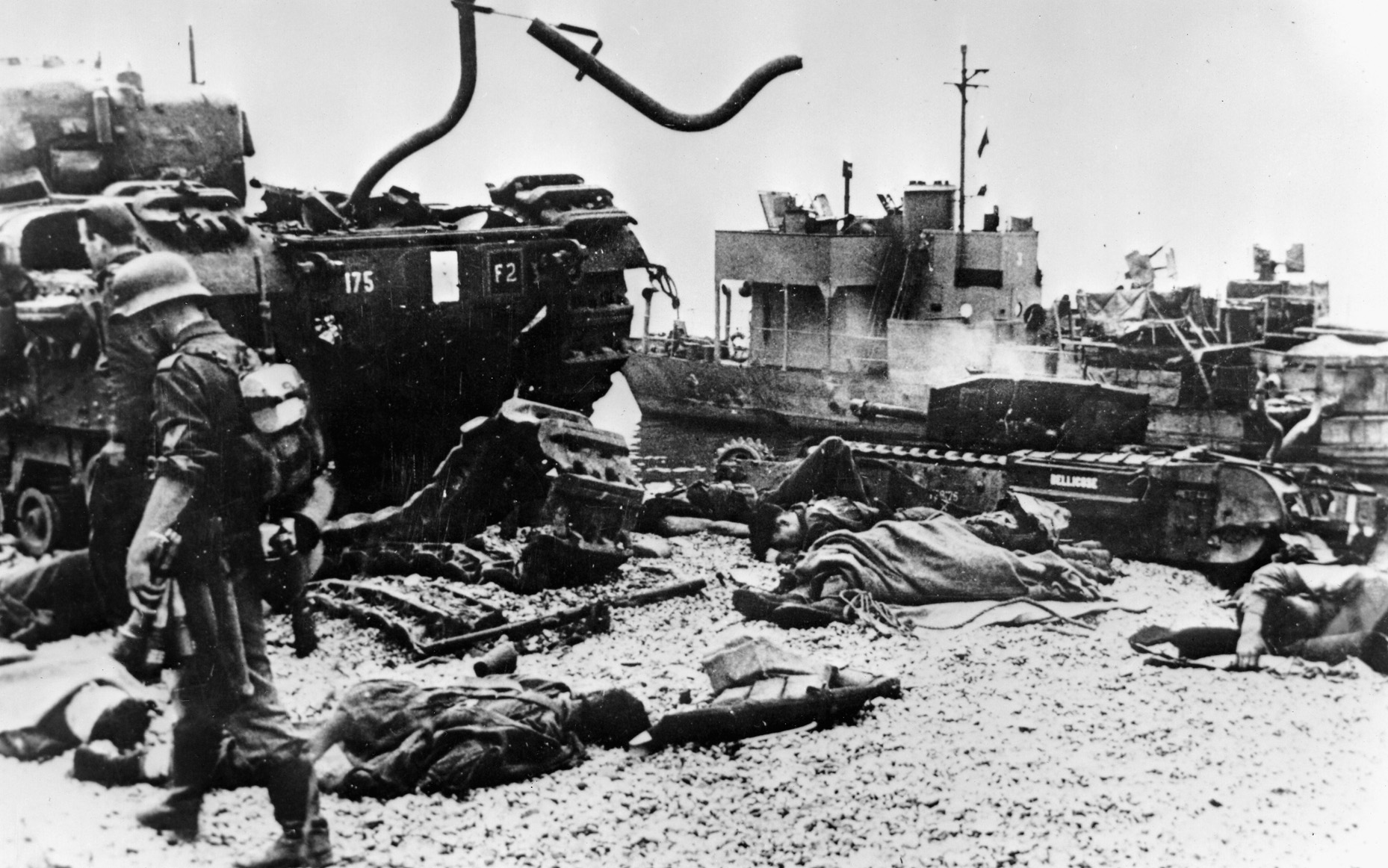
on the beach at Dieppe. Conjecture still shrouds the circumstances under which the raid was approved,
and the cost was high in lives and equipment.
Pauwels is not alone in his view that the Dieppe raid was meant to fail. Some Canadian soldiers who lived through the raid share the same sentiment. Jack Kimberley, a private in the Royal Hamilton Light Infantry, later said, “We were sold out higher up, sold down the river.” Private Jack Poolton was a soldier in the Royal Regiment of Canada. Of the 524 soldiers in the Royal Regiment only 65 made it back to England. Poolton’s daughter would later claim, “My father always felt that they had been sacrificed.”
Forbes West, a major at Dieppe in the Royal Regiment who later went on to become a brigadier general, said, “I feel that from the day planning began, it was intended to be a failure…. The British were being pressed by the Russians and Americans to open a second front, so we were put in with the firm intention of being destroyed. Men at the chief of staff level would consider 4,000 casualties a small price to pay for convincing the Russians and Americans an invasion would be a disaster…. I came to the conclusion that the attack was meant to be a disaster. First you have a frontal assault, which is not very good practice. It’s to be supported with heavy bombing, capital ships and paratroopers, and then each of these are taken away leaving just infantry to attack a fortress with rifles and bayonets. I’m absolutely certain it was intended to be a failure.”
Some people might think it is preposterous to believe that the British government would send a whole Canadian division to be slaughtered. However, recent research reveals that the British government had planned this type of activity before. Brig. Gen. Churchill Mann was the deputy military force commander for the Dieppe Raid. He wrote that two years before the raid “on May 26, 1940 [when the German army had the British and French armies trapped on the beaches of Dunkirk], the war cabinet considered that a sacrifice of a good part of the Canadians would bring the United States into the war as an ally. We at HQ1 Headquarters commenced arrangements to embark about half the divisions, using passenger-ship lifeboats, to land over open beaches without any support at all at Gravelines. Fortunately wiser counsels prevailed and this operation was cancelled.”
Perhaps we will never know why this tragic raid took place. The last word on the raid belongs to Patrick Porteous, a British commando who won the Victoria Cross that day for bravery. Before he passed away he said, “The people who planned it should be shot.”
Canadian author Brent Dyck is a resident of Richmond, British Columbia, and holds a history degree from the University of British Columbia.
